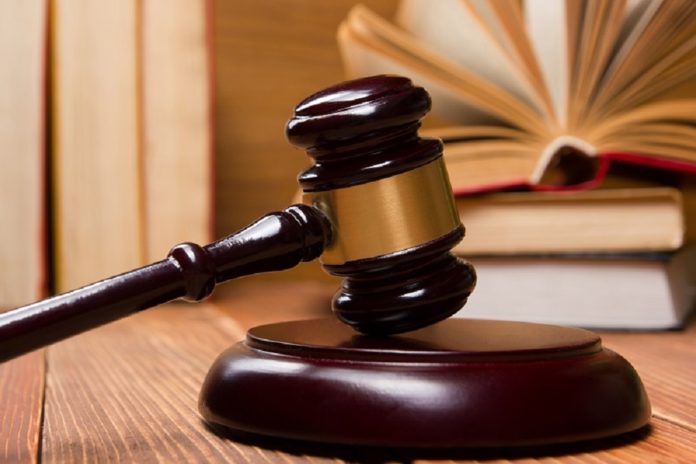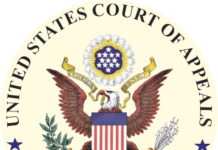Two churches are suing Gov. Laura Kelly over her executive order limiting mass gatherings at church services in an effort to slow the spread of the coronavirus.
The First Baptist Church in Dodge City and Calvary Baptist Church in Junction City filed a lawsuit against the governor in federal court early Thursday evening.
They are asking a judge to block the state from enforcing the executive order and declare it unconstitutional.
The churches charge that the executive order violates their constitutional right to freely exercise their religion as guaranteed by the First Amendment.
“Plaintiffs sincerely believe that the Bible teaches the necessity of gathering together for corporate prayer and worship and that such assembly is necessary and good for the church and its members’ spiritual growth,” the lawsuit states.
The executive order, the lawsuit says, burdens the churches’ religion by prohibiting them from holding in-person church services with more than 10 people not involved in the service.
The lawsuit contends the executive order substantially interferes with the churches’ “ability to carry out their religious doctrine, faith, and mission.”
The lawsuit also says the executive order violates their constitutional right to free speech because it prohibits them from “engaging in religious speech through their church services, which occur exclusively on private property.”
It also contends the order violates churchgoers’ constitutional rights to assemble.
The governor’s office released a response to the lawsuit Thursday night.
“We are reviewing the complaint, which we received after close of business today,” the governor’s spokeswoman Lauren Fitzgerald said in a statement.
“As Gov. Kelly has said, this is not about restricting religion, it is about keeping people safe and saving Kansans’ lives,” Fitzgerald said.
The lawsuit is the latest in a series of twists and turns involving the governor’s executive order limiting religious gatherings to 10 people or fewer.
Kelly signed the order last week, saying it was essential to protect the health of Kansans as the coronavirus started to reach its zenith near the Easter weekend.
As of Wednesday, Kansas Health Secretary Lee Norman said the state was tracking 26 COVID-19 outbreaks, including five related to church gatherings.
On Thursday, the state had 1,588 confirmed cases of COVID-19, up 94 from Wednesday. There were 80 deaths, an increase of four from Wednesday.
The governor went to the Kansas Supreme Court the day before Easter to preserve the executive order after it had been revoked by a majority of Republican leaders on the Legislative Coordinating Council.
Republican leadership, however, believed the order violated the constitutional rights of churches because it included criminal penalties — 12 months in jail and a $2,500 fine — for violators.
They also thought the order treated churches differently from other secular businesses.
Kansas Attorney General Derek Schmidt also has questioned the constitutionality of the order and has urged local law enforcement not to enforce the measure.
The Supreme Court decided in favor of the governor but on narrow grounds, ruling that the Legislative Coordinating Council did not have the authority at this point in time to revoke the governor’s executive order.
The court largely sidestepped any discussion of the larger religious freedom issue when it ruled on the case late Saturday night, just hours before Easter Sunday.
On Easter Sunday, Calvary Baptist Church held an in-door church service with 21 people “while adopting rigorous social distancing and health safety protocols to protect
individuals gathered for worship,” the lawsuit states.
A law enforcement official monitored the service.
First Baptist Church in Dodge City, with an average weekly attendance of 50 to 75 people, said its difficult for it to offer online services because its members either lack internet service or have limits on bandwidth.
The church tried to offer a “drive-in” service on Easter in its parking lot, but high winds and internet streaming made it difficult for churchgoers to participate in the service, the lawsuit states.
Since the court decision, law enforcement has indicated it will enforce the executive order this week if churches meet in violation of the governor’s executive order.
The Geary County sheriff told Aaron Harris, pastor at Calvary Baptist, that he would enforce the order if the church held services this week with more than 10 people, the lawsuit says
As state officials have stepped up efforts to contain the spread of the virus nationally, there has been an increasing number of confrontations with churches that believe restrictions on mass gatherings limit their constitutional rights.
Two days ago, Attorney General William Barr said churches would not be singled out as local officials work to stop the spread of the corona virus.
The U.S. Justice Department filed a statement of interest supporting a church in Greenville, Mississippi, where local officials had said churches would be closed for in-person and drive-in services as long as the statewide stay-at-home order was in place. Local officials later backed off that position.
Earlier this week, a federal judge in San Diego rejected a lawsuit from a small Christian church claiming that public health restrictions that banned group gatherings violated their right to free speech.
In that case, U.S. District Judge Cynthia Bashant found that the government’s interest in protecting public health warranted limits on public gatherings.
The Kansas lawsuit was brought on behalf of the churches by the Alliance Defending Freedom, a group based in Scottsdale, Arizona that defends against what it believes are threats to religious freedom.
Two years ago, Newsweek profiled the organization, comparing it to a conservative variation of the American Civil Liberties Union.
The magazine reported the organization had a network of 3,200 attorneys nationally and $48 million in funding.
















